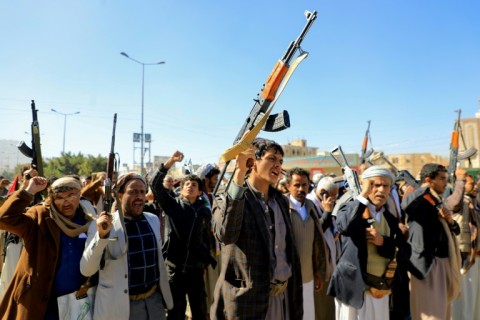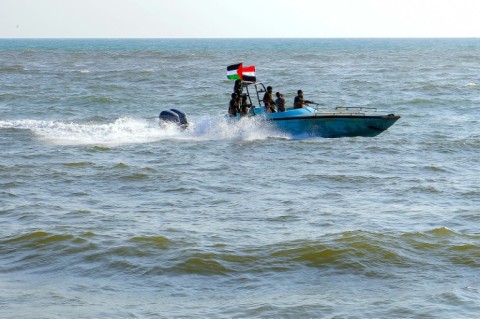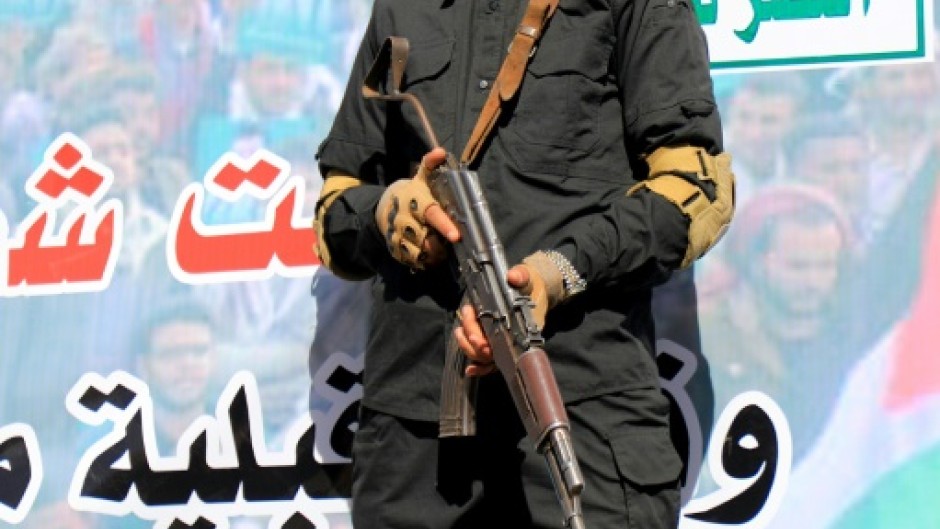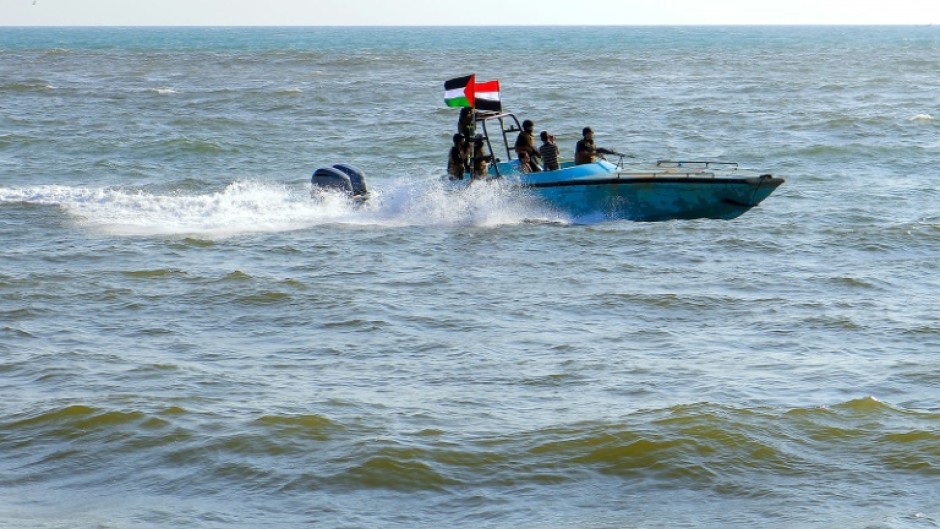Yemen's Iran-backed Huthis said Friday that US and British interests were "legitimate targets" after they launched deadly strikes against the rebels following weeks of disruptive attacks on Red Sea shipping.
The barrage of strikes early on Friday against the Huthis, who say they are acting in solidarity with Palestinians in Gaza, stoked fears of the Israel-Hamas war spilling over across the region.
Violence involving Iran-aligned groups in Yemen, Lebanon, Iraq and Syria has surged since the war in Gaza began in early October.
Britain, the United States and eight allies said the strikes aimed to "de-escalate tensions". But Iran and other governments condemned the Western action or warned that unrest could worsen.
Hamas said it will hold Britain and the United States "responsible for the repercussions on regional security."
Oil prices rose four percent on news of the strikes before falling back. Bjarne Schieldrop, chief commodities analyst at SEB bank, cited market fears that "the region is on an unpredictable escalating path".
The Huthis have intensified attacks on what they deem to be Israeli-linked shipping in the Red Sea trade since Hamas's unprecedented attack on Israel triggered the Gaza war on October 7.
Some 12 percent of global maritime trade normally passes through the Red Sea, but since mid-November the volume of shipping containers has dropped by 70 percent, according to maritime experts.
Major shipping firms have rerouted their cargoes around the tip of Africa, hitting trade flows at a time when supply strains are putting upward pressure on inflation worldwide.
The rebels have controlled much of Yemen since a civil war erupted in 2014 and are part of an Iran-backed "axis of resistance" against Israel and its allies.
"All American-British interests have become legitimate targets" for the Huthis following the strikes, the rebels' Supreme Political Council said in a statement on their official media.
Hussein al-Ezzi, the rebels' deputy foreign minister, said the United States and Britain "will have to prepare to pay a heavy price".
Friday's strikes targeted an airbase, airports and a military camp, the Huthis' Al-Masirah television said, with AFP correspondents and witnesses reporting heavy strikes in both the capital Sanaa and the Red Sea port city of Hodeida.
Britain's defence ministry said four RAF Typhoons hit a site in Bani, in northwestern Yemen, used to launch attack drones, and an airfield in Abbs from where cruise missiles and drones were operated over the Red Sea.
- 'Fuelling insecurity' -

US President Joe Biden called the strikes a successful "defensive action" after the Red Sea attacks and said he "will not hesitate" to order further military action if needed.
With fighter jets and Tomahawk missiles, at total of 60 targets at 16 Huthi locations were hit by more than 100 precision-guided munitions, US Central Command said in a statement.
Huthi military spokesman Yahya Saree said at least five people had been killed.
Nasser Kanani, spokesman for Iran's foreign ministry, said the Western strikes "will have no result other than fuelling insecurity and instability in the region", while "diverting the world's attention" from Gaza.
Hundreds of thousands gathered in Sanaa in protest, many waving Yemeni and Palestinian flags and holding portraits of Huthi leader Abdulmalik al-Huthi, an AFP journalist reported.
"Death to America, death to Israel," they chanted.
In Tehran, hundreds of people rallied against the United States, Britain and Israel while voicing support for Gazans and Yemenis.
Protesters also marched in the Gulf Arab state of Bahrain, home base of the US Fifth Fleet.
In war-torn Gaza, Palestinians lauded the Huthis' for supporting their cause and condemned Britian and the United States forn their military response.
"No one is standing with us but Yemen, and when Yemen decided to take action to stand with the Palestinian people and the people of Gaza, they fought it and allied against it," said Fouad al-Ghalaini, one of hundreds of thousands of Palestinians left homeless by Israel's bombardment of Gaza City.
Saudi Arabia's foreign ministry said Riyadh "is following with great concern the military operations" and called for "self-restraint and avoiding escalation".
The kingdom is trying to extricate itself from a nine-year war with the Huthis, though fighting has largely been on hold since a truce in early 2022.
Oman, a mediator in efforts to end Yemen's civil war, said it "has warned several times about the risk of the extension of the conflict in the region".
Iraq and Syria voiced similar concerns.
- 'Strong signal' -
Further afield, China said it was "concerned about the escalation of tensions in the Red Sea" and Moscow condemned the "illegitimate" strikes.

British Prime Minister Rishi Sunak said the Huthis' breach of international law merited a "strong signal" in response.
"People can't act like this with impunity," he said, adding the Huthi attacks were "disrupting the global economy".
US Defence Secretary Lloyd Austin said the strikes "targeted sites associated with the Huthis' unmanned aerial vehicle, ballistic and cruise missile, and coastal radar and air surveillance capabilities".
As the rebels have weathered years of air raids by a Saudi-led coalition, hitting them would have little impact and would only raise their standing in the Arab world, Gerald Feierstein, a former US ambassador to Yemen, said before the strikes.

"The Huthis are immune to air strikes," agreed Maged Al-Madhaji, co-founder of the Sanaa Center for Strategic Studies think tank.
US and allied forces in Iraq and Syria have also faced increased attacks since the Israel-Hamas war began, with Washington responding to several by bombing assets of pro-Iran groups.


